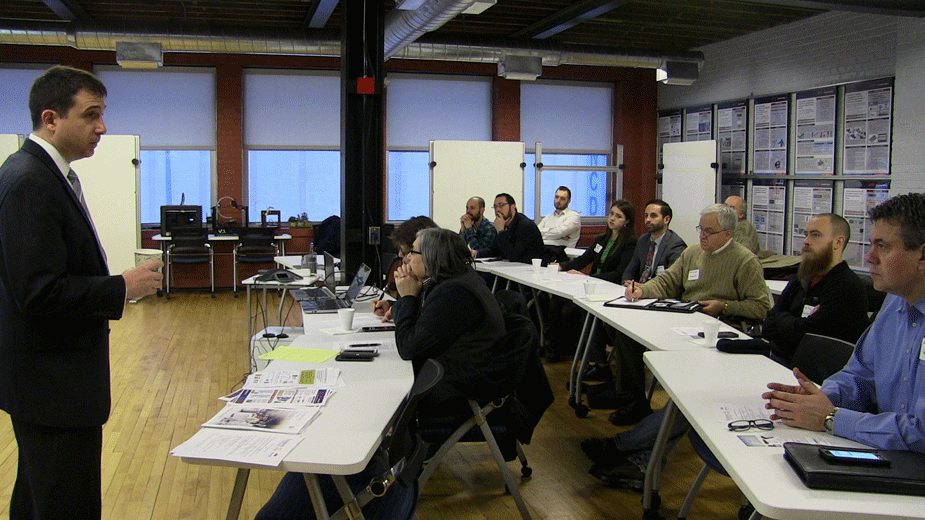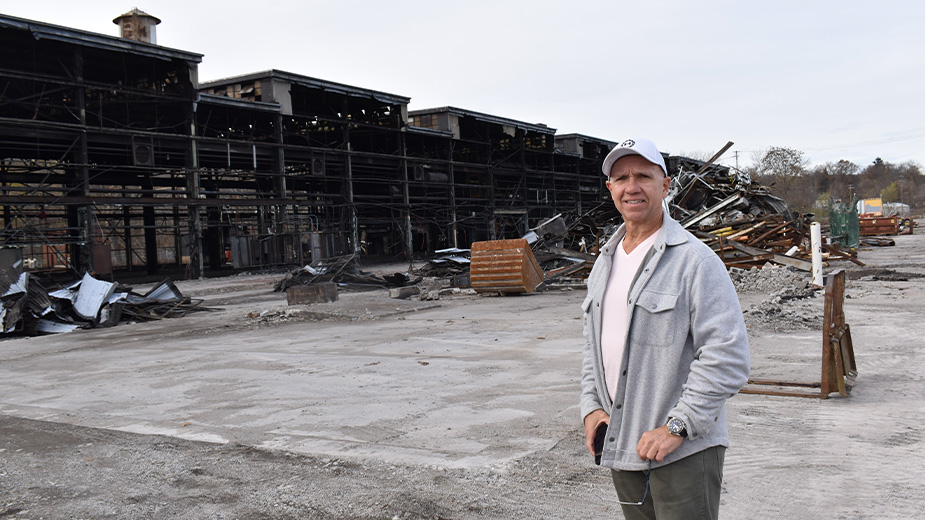YBI Gauges Interest in Tool and Die 3-D Printing
YOUNGSTOWN, Ohio – With the help of a state grant, the Youngstown Business Incubator hopes to bring additive manufacturing to the Mahoning Valley’s tool and die manufacturers.
Through the Advanced Tooling Acceleration Program, the incubator, along with Youngstown State University and America Makes, will bring experts into area businesses to examine their production processes, provide insights about where additive manufacturing could be used and, afterward, give business owners a discounted rate for printing parts.
“This opportunity will allow them to be on the leading edge of technology rather than the bleeding edge,” said Barb Ewing, YBI chief operating officer. “It’s a very real viable application that’s available to companies today. Our goal is to work with manufacturers and their tooling partners to understand the best application for their industry.”
But before any money is awarded, Ewing explained Thursday to 15 manufacturers at a meeting at America Makes, the YBI must determine the level of interest and get commitments from companies that they’ll participate before the application deadline in early March.
The state, she explained, isn’t interested in an “if you build it, they will come model. They want a firm, upfront commitment from the community.”
Among those committing is Kyle Kiraly, controller at Kiraly Tool and Die. The hour-long presentation by two YSU professors, Brett Conner and Darrell Wallace, on the types of 3-D printers available and potential uses persuaded him.
“The major benefit to these services is having experts come in to see our processes and how we do things,” Kiraly said. “They’ll go through our production, talk to our machinists and make the connections for additive manufacturing.”
Right now, 3-D printing at Kiraly Tool and Die is “supplemental,” he explained, used mostly to provide small-scale models to machinists, who use a blueprint when they cut a large version from steel. But with help from the grant and YBI, there could be room for expansion into external uses.
“From what we learned today, we know we can use it as an alternative, low-cost source of production tooling for lower run tooling,” Kiraly explained. “Otherwise, we may be taking six weeks to produce a massive steel die for our customers that’s only used once that costs them thousands of dollars.”
The program has two phases. First is an assessment of the businesses to find 3-D printing opportunities at no cost – Ewing noted that a six- to eight-hour assessment like this can run up to $1,200 – and half-price printing for identified projects, up to $1,000. YBI is aiming to work with between 50 and 60 companies in the initial phase.
Phase two will provide subsidies for consulting and engineering time, as well as printing services for one part. Here, companies must commit to tracking employee work times for cost sharing, collect and report data as laid out in the final grant proposal and furnish information for case studies.
“The industry is changing very fast. We’re just seeing the front edge of the storm coming. This is a great way for companies to learn how to use additive manufacturing in a very low risk way,” Ewing said. “This is not space age stuff. This is a type of manufacturing that we do here in the Mahoning Valley every day.”
While not all of the 15 or so companies at the meeting could make use of the services the grant would fund, many left thinking of ways they could contribute to the grant. Jeff Keel, owner and CEO of Alios 3D in Warren, said that it’s possible his business could be used to provide some of the discounted printing services.
“We can offer 3-D printing services in any material and we can get into materials that aren’t necessarily used for dies or molds. We have access to all of those,” he said. “[3-D printing is] changing the whole paradigm of how people cost a job when they make tooling.”
While not quite ready for use on a mass-production scale, Keel noted that additive manufacturing in the tool and die industry can be used for low-volume productions or prototyping.
The grant proposal is still being written, Ewing said, but should it be awarded to the incubator and its local partners, it could provide a major boost to local manufacturers should they take advantage.
“These programs, where you work with existing manufacturers to adopt the technology, are some of the most important economic development work that we can do,” she said. “It’s one thing to develop an industry, but being able to transform existing industry is something that’s a true differentiator. And that’s part of the promise of America Makes.”
Pictured: Brett Conner (left) discusses 3-D printers and their applications during this morning’s program at America Makes.
Copyright 2024 The Business Journal, Youngstown, Ohio.



